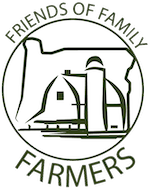By Sophie Javna, 7/30/13
In 1981, Richard and Joyce Stanley bought 10 acres of farmland in Ashland, Oregon. They had been working in East Africa to develop in rural development and alternative energy project. This work took them overseas constantly and the Stanleys knew they would need a farm that didn’t require the constant care of raising vegetables or livestock. So they decided to transform their new grazing land into a tree farm; trees, thankfully, require little maintenance.
Planting literally thousands of trees—mostly ponderosa pines and incense cedars—on their previously bare grazing land, Richard and Joyce created what is now a backyard of mini-forests. Along with 50-foot ponderosas and cedars, the Stanleys also grow plum, apple, peach, cherry, and pear trees. They named their home Karibu Farm. The word “Karibu” (unlike Karibou) is Kiswahili for “Welcome.”
The Stanleys welcomed a bridge between their conservation work overseas and their new tree farm in Southern Oregon. Over time they formalized their commitment to conservation by starting the Legacy Foundation and focusing mainly on training in biomass briquette production. Find out more about their love of trees by reading about their project with the Legacy Foundation.
However, not every new tree seedling took root on Karibu Farm and Joyce and Richard found themselves with extra farmland. That’s where Oregon’s agricultural landlinkink program, iFarm, came in. After hearing about iFarm through the Ashland Farmers’ Market, Joyce and Richard placed an ad for their unused land. After a month, they received a response from Jake Hayes, a local Ashland farmer looking for his own plot. In 2009, Jake signed a contract with the Stanleys to lease two acres of pasture. “Our connection worked because Jake came to us with a well thought out business plan,” explains Joyce Stanley, “and a strong and obvious commitment to establishing a well-designed and functioning small farm set-up.” Jake was also a good fit because, unlike many other iFarm applicants, he didn’t require housing, which was unavailable on the property.
Jake’s desire to farm dates back to his earliest memories of his uncle’s farm in Utah, he tells in his blog. “The experience was profound,” he recalls, “even though at that age I couldn’t have expressed it in words.”
Jake’s own Pradaria Farm now thrives on two acres of the Stanleys’ property, where he raises chicken (for meat and eggs), turkeys, goats, and sheep. The name Pradaria, Portuguese for “grassland,” denotes Jake’s “simple approach to farming” and pays homage to his Portuguese heritage and their early farming techniques. With four years of experience, Pradaria Farm has expanded its offerings. Customers can sign up for Jake’s new chicken CSA, or purchase chicken eggs or turkey meat from the farm. If you’re interested in turkey, don’t wait too long to purchase it. “Last year we sold out in about an hour,” Jake cautioned. He attributes this popularity to the turkey’s diet, which is rich in summer grasses and makes “the tastiest turkey I have ever had.”
The Stanleys have renewed their contract with Jake every year and the relationship continues to benefit both parties. Joyce and Richard are currently working with communities in Guatemala to protect forests and are very happy to know that their land in Ashland is, as Joyce says, “being used to its fullest.” Jake will most likely expand his farm next year to incorporate one more acre of Karibu Farm into his operation. The relationship, Joyce and Richard explain, will be a lasting one.
From one farmer to another, Jake thanks Joyce and Richard and encourages others to do the same. “If you meet the Stanleys, please thank them for making local, clean, food a priority.”
